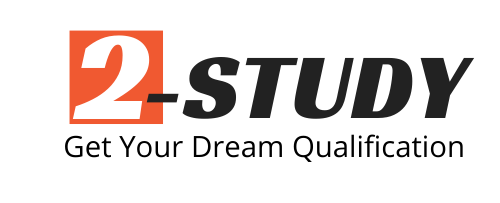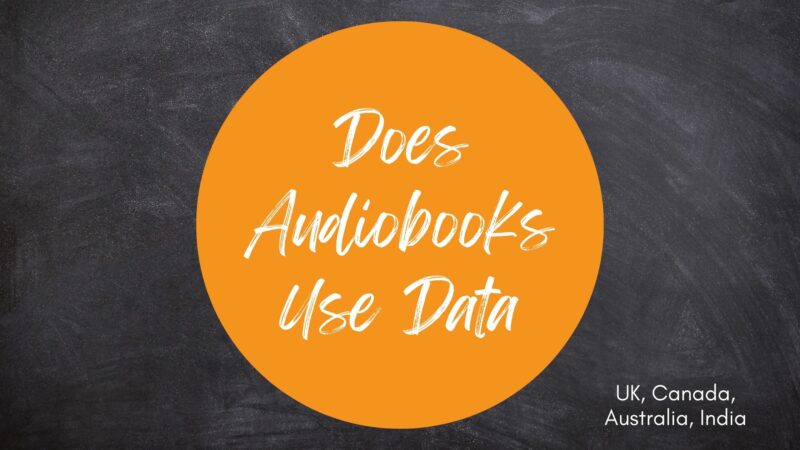Best Canadian Friendly US Dental School (Updated List)

With admission rates ranging from 3.6 to 3.9, Canadian students are increasingly facing an uphill struggle to get admission to Canadian dentistry schools. There are many more dental schools to select from in the United States.
But US Dental schools, like every professional school, may have limitations on the number of overseas students they may admit. Most state-sponsored dentistry schools give preference to in-state students and do not admit foreign students from Canada. So, which dental schools in the United States are best for Canadians?
Canadian Friendly US Dental School
Despite the fact that medical professionals are in limited supply in the United States and Canada, there is no scarcity of applications.
Although the United States has over 150 medical schools, the rivalry is no less fierce in Canada, where there are just 17. Source
Candidates from Canada and other countries who have permanent residency in the United States are usually considered US applicants. Also, many medical schools treat Canadian citizens as out-of-state candidates, and these schools are dubbed “Canadian friendly.”
Canadians must meet the same admissions standards as out-of-state American students for these medical schools. Most crucially, Canadians do not pay foreign student fees at these colleges; instead, they pay out-of-state costs.
List of Canadian-Friendly Dental Schools in the United States
The following list is a complete overview of all Canadian-friendly US dental schools. International students are welcome at these institutions; however, they are best suited for Canadian students.
New York Medical College
Applicants must satisfy the following requirements in order to be considered:
- Be a U.S. citizen, residence permit, or have DACA eligibility (Deferred Action for Childhood Arrivals).
- A bachelor’s degree from an institution or university in the United States or Canada that is certified.
- International students with a bachelor’s degree from a recognized institution or university in the United States or Canada are also welcome to apply.
- All applicants must take the Medical College Admission Test.
Their most recent entering group had a 3.96 median and 3.92 average undergraduate GPA.
For more information visit: https://med.nyu.edu/education/md-degree/md-admissions/admissions-requirements.
University of Detroit Mercy
You may apply to Detroit Mercy under the Early Action or Regular Admission plan.
Freshman candidates must submit supporting documents in addition to the application which are:
- Transcript from high school.
- A 250-word writing sample on a theme of your choosing.
- A recommendation letter.
- Scores on the ACT or SAT (optional for most programs).
The University of Detroit Mercy has a 3.56 average GPA. This puts the University of Detroit Mercy in a strong position in terms of GPAs.
For more information visit: https://www.udmercy.edu/admission/freshman/index.php.
Boston University School of Medicine
All candidates are subjected to a thorough, flexible, and holistic screening by the Admissions Committee. This assessment focuses on each applicant’s unique abilities, successes, experiences, and potential to contribute to the learning community, using information from:
- Academic performance.
- Research, service, clinical practice, teaching, and other experiences
- Throughout the program, you’ll find information on your personal history and background.
- Recommendations
- Essay
- Interviews
There are no minimum GPA or MCAT score requirements at Boston University School of Medicine. Once AMCAS advises them of your interest, the Office of Admissions will send you a supplemental application.
For more information visit: https://www.bumc.bu.edu/busm/admissions/.
Nova Southeastern University
You’ll need the following documents to complete your admission requirements:
- High School GPA
- High School Rank
- High School Transcript
- College Prep Courses
- SAT/ACT (Considered but not required)
- Recommendations
To get into Nova, applicants must have extraordinary marks. Nova Southeastern University’s admitted freshmen class had an average high school GPA of 3.79 on a 4.0 scale, suggesting that mostly A- students get accepted and eventually attend.
For more information visit: https://undergrad.nova.edu/admissions/index.html.
Case Western Reserve University School of Medicine
Prior to enrollment, applicants must finish a course of study leading to a bachelor’s degree at a recognized US or Canadian college or university.
Requirements for the application:
- Prior to matriculation, pre-requisite courses must be completed.
- Passed the MCAT exam.
- Recommendation
They don’t require the CASPER test or any of the Altus Suite’s components (Duet or Snapshot). This is true for each of our three MD and MD/Ph.D. programs.
For the class of 2021, the average GPA and MCAT were 3.78.
For more information visit:
Temple University
The papers listed below are required with the application procedure to complete your application.
- Official transcripts from high school and/or university, with English translations (required).
- Test Options.
- Test results for English language competence.
- Recommendation Letters (optional).
The accepted freshmen class at Temple University had an average high school GPA of 3.41 on a 4.0 scale.
For more information visit: https://admissions.temple.edu/apply/international-students.
Howard University College of Medicine
Following requirements must be fulfilled to take admission in Howard:
- Prospective medical students must have earned 71 semester hours or the equivalent in an accredited US or Canadian college or university.
- The MCAT is required of all applicants and can be taken at any time, but no later than January of the year that you are seeking admission. Only MCAT scores taken within the last 3 years prior to matriculation will be considered.
- The American Medical College Application Service (AMCAS) application must be used by all prospective applicants to the College of Medicine.
- Students matriculating in and graduating from Howard University College of Medicine must be able to meet the technical requirements of the academic program and not pose a threat to the well-being of patients or themselves.
- All applicants to the College of Medicine at Howard University are required to complete an online assessment (CASPER), to assist with their selection process.
Applicants should meet the GPA and MCAT scores: Science GPA of 3.0 and a MINIMUM total MCAT 494 (New MCAT).
For more information visit: http://medicine.howard.edu/admissions.
Marquette University
To satisfy your entrance criteria, you’ll need the following documents:
- Test Scores
- High School GPA
- High School Class Rank
- Completion of College Preparatory Program
- Recommendations
The average high school GPA of the admitted freshman class at Marquette University was 3.63.
For more information visit: https://bulletin.marquette.edu/undergrad/collegeofnursing/admissionrequirements/.
Midwestern University
Students interested in attending AZCOM must provide the following documentation:
- Completion of the prerequisite courses for entrance.
- Prior to admission, you must have completed a bachelor’s degree from a regionally approved institution or university.
- Scores on the Medical College Admissions Test that are competitive (MCAT).
- It is necessary to provide two letters of recommendation.
To be competitive, students should have minimum cumulative GPAs and science GPAs over 3.00 on a 4.00 scale.
For more information visit: https://www.midwestern.edu/glendale-az-campus-catalog/arizona-college-of-osteopathic-medicine/admissions.
Touro College of Dental Medicine
In addition to the undergraduate coursework, their admission prerequisites are as follows:
- Bachelor’s Degree (BA/BS)
- Dental Admission Test (DAT)
- Grade Point Average (GPA) of 2.7 on a scale of 4.0.
- Letters of Evaluation
- Graduate School Letter of Evaluation.
For more information visit: https://dental.touro.edu/admissions/academic-requirements/.
University of Minnesota
Admissions selections are made after a thorough examination of each student’s academic and contextual considerations. It’s important to note that no one aspect determines the outcome.
The following academic variables are considered:
- Coursework up to and including high school graduation (admitted students often meet or surpass the University’s high school criteria).
- Academic coursework grades.
- Class rank/Grade point average of 3.5 on a scale of 4.0.
- Academic curriculum complexity depends on what is offered in high school, including honors, AP, IB, A-Level, or college-level courses.
- ACT or SAT scores. International students are not needed to submit an ACT or SAT score.
- Score on the English Proficiency Test (when required).
- Academic interests of the applicant. (Evaluated according to the program).
For more information visit: https://admissions.tc.umn.edu/admissions/admissions-overview.
University of Southern California
Ostrow’s innovative learner-centered curriculum gives Doctor of Dental Surgery students comprehensive clinical training and thorough preparation in the latest techniques for advanced oral health care.
These are the requirements for applicants:
- Prerequisite coursework must come from a college or university in the United States or Canada that is accredited. There is no requirement for a specific undergraduate major.
- When you apply, you must have completed or beginning to complete a minimum of 60 semester units with a c or better grade.
- Two recommendation letters in biology, chemistry, or physics from lecture-based science professors.
- A dentist’s recommendation in one letter.
3.61 is the average science GPA for the class of 2025.
For more information visit: https://dentistry.usc.edu/admission/doctor-of-dental-surgery-dds/.
University of the Pacific
To satisfy your entrance criteria, you’ll need the following Prerequisites:
- Pre Dental College Years: Three years is the general minimum (90 semester or 135 quarter units)
- Limitation on Community College Work: Community college courses will be accepted if they are transferable to a four-year college as similar pre-dental
- Applicants must finish either two semesters of organic chemistry or one semester each of organic chemistry and biochemistry, according to the Admissions Committee.
- A composition or technical writing course is necessary. Other courses should help students improve their writing and vocal communication abilities.
- 2 letters from science professors and 1 letter from a person of your choice (e.g., a dentist, a research or job manager/supervisor) OR 1 letter from a committee.
- 40 hours of dental shadowing is required (minimum hours must be general dentistry).
- Your overall and scientific GPAs, as well as the institutions you attended and the complexity of your course load, are all evaluated on an individual basis.
- Dental Admissions Test (DAT): Students who submit their Dental Admissions Test scores by November are given priority.
Applicants should achieve a B or better in each course with a GPA of 3.5 or above.
For more information visit: https://dental.pacific.edu/dental/academic-programs/doctor-of-dental-surgery/dds-admissions-requirements.
Virginia Commonwealth University School of Medicine
The goal is to select the most capable students to attend their school by using the AAMC Holistic Review Project E-A-M Model of evaluating Experiences, Attributes, and Metrics.
Following are the admission requirements for Virginia Commonwealth:
- The Medical College Admission Test is mandatory for all candidates (MCAT). Send your MCAT scores together with your AMCAS application. On the revised MCAT, a score of 503 is necessary.
- Prior to admission, it is encouraged and typical to get a baccalaureate degree from an approved university. Students must demonstrate that they have received a wide education that includes social sciences, history, the arts, and languages in addition to the core sciences.
- A minimum of three letters of recommendation should be submitted by applicants (maximum of five). Your school will put together and deliver a letter bundle.
- Applicants should demonstrate their dedication to the community by participating in volunteer and service activities. This criterion is not met by work done in service-learning courses or community service done as part of a job.
The minimum acceptable GPA is 3.3. The average GPA is approximately 3.7 in science, non-science, and overall.
For more information visit: https://medschool.vcu.edu/admissions/md/future-applicants/.
Final Thoughts
We’ve defined “Canadian-friendly” schools in a few different ways for the sake of this ranking.
Some universities have explicitly announced to the AAMC that Canadian candidates are treated much like out-of-state US applicants rather than foreign applicants.
Others have argued that they assess all candidates in the same group, regardless of nationality, and that their admissions statistics show that Canadian students are consistently matriculated.
If you’re debating between a Canadian and an American medical degree, a Canadian MD will provide you with the best chance of obtaining residency in Canada.
You can still move to the United States after your residence. Still, you’ll have to find work, pass the United States Medical Licensing Exam (USMLE), and navigate the bureaucratic maze of obtaining an H1-B or permanent resident status in the United States.






